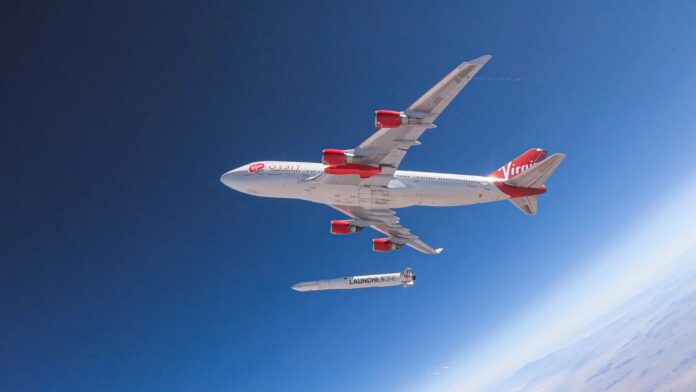Launch company Virgin Orbit is returning a “small” team to operations from furlough to prepare for its next launch as it approaches a financing deal, according to media reports.
Virgin Orbit, facing cash flow issues, furloughed all but a small number of employees on March 15 and has spent the last week looking for new funding and securing restructuring firms as a backup plan, according to various media reports.
Now the company is close to raising $200 million from Matthew Brown, a Texas-based venture capital investor, according to an exclusive Reuters report (opens in new tab). The company also plans to bring a small team back tomorrow (March 23) to continue launch preparations, an all-company email obtained by CNBC (opens in new tab) told employees.
“Any viable path for our operations will require us to successfully launch,” Virgin Orbit CEO Dan Hart wrote in the email, as quoted by CNBC. The company plans to extend the unpaid furlough for most of Virgin Orbit’s 750 employees, however, “through at least Monday” (March 27).
Related: Failed Virgin Orbit launch leaves open opportunity for UK as a space ‘underdog’
Virgin Orbit, which is part of billionaire Richard Branson’s Virgin Group, has had both cash issues and a launch failure in recent months.
On Jan. 9, an issue with the company’s LauncherOne rocket caused a failure that led to the loss of nine satellites. The cause was a fuel filter in the upper stage of the rocket that was dislodged during flight, and Virgin Orbit has said a modification to the design is already in the works for future launches.
The company’s last quarterly earnings report, from November 2022, included an operating loss of $50.5 million as well, and a recent report from Sky News (opens in new tab) suggested that Virgin Orbit’s value “plummeted” after the launch failure. (Virgin Orbit had four consecutive launch successes before the Jan. 9 incident.)
Branson’s Virgin Group had spent something like $1 billion (£818 million) on Virgin Orbit over the years, including $60 million (£49 million) since November 2022, Sky News reported. CNBC noted that majority owner Branson, a billionaire many times over, is not interested in putting more money into Virgin Orbit.
Virgin Orbit sends satellites to orbit using the 70-foot-long (21 meters) LauncherOne, which takes off under the wing of Cosmic Girl, a modified Boeing 747. The plane carries LauncherOne high in the sky before dropping the rocket, which then flies on its own to space. Virgin Orbit representatives have said launching using a plane is a more flexible solution for customers than standard rockets.
Virgin Galactic, another portfolio company of Branson, also uses air launching, in its case for space tourists. Virgin Galactic’s carrier plane, named VMS Eve, brings up a suborbital spaceliner called VSS Unity for spaceflight. Virgin Galactic has been doing upgrades and maintenance to its vehicles and has flown no passengers since July 2021, but the company has said it is nearly ready to fly people again may do so this spring.
Elizabeth Howell is the co-author of “Why Am I Taller (opens in new tab)?” (ECW Press, 2022; with Canadian astronaut Dave Williams), a book about space medicine. Follow her on Twitter @howellspace (opens in new tab). Follow us on Twitter @Spacedotcom (opens in new tab) or Facebook (opens in new tab).

